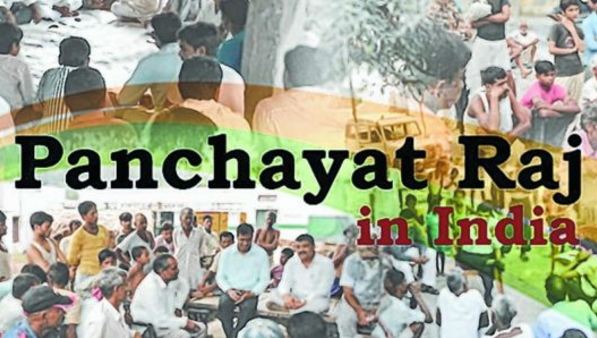The PMO responds to the letters of the PMO’s grievances Cell!
Also the PMO is active and sensitive to the citizens’ petitions!
Even now the dilemma of Panchayat Raj vs. District Collector’s Raj!
Yet creating rural employment is not so easy. Rural India is a complex web.
The Indian migrants problem is very intricate indeed.
We appeal to the PMO and also the NITI AYOG to consider our views very carefully. Rural India is full of contradictions. There is high political and administrative corruption. Nothing moves without corrupt practices. The party apparatus is the first hurdle.

Party functionaries, from village to the district and why even the upper levels are known to indulge in dubious activities. The government schemes function in a partisan way.
The administrative structure, with petty party cadre seem to be active in interfering with the police to other levels of administration.
There are other traditional socio-economic and cultural hurdles. Now democrat had changed its features. Everyone is a political functionary these days. Our years in the rural media had taught us what the professional economists and experts haven’t taught us.
That is: Every marginal farmer is either debtor and also a litigant.
Even petty piece of land ownership leads the farmer, the marginal and small farmers, and the darlings of urban chatteratti.
‘The enormiity of the Indian migrant problems is going to remain with us for a long time.
Better we create a conducive environment after sometime so that the returned migrants might themselves go for old jobs with high payments.
We did’nt realise how vast is the Indian rural migration population.
Even the Supreme Court didn’t take up their case for the first 50 odd days.
Only when the migrants actually came out in the open and also, tragically left out for themselves India woke up to the Enormity of the problem is likely to persist so long we don’t r really wake up to the rural issues.
Our media kit focused at the rural Indian r realities and we have to shed our urban-biased mindset.
In many States of India hardly any decentralisation of power has taken root.
In the initial years after Independence and also when the voices of such leaders like Mahatma Gandhi and Pandit Jawaharlal Nehru were still resonant we all talked of swaraj and gram Swarj and lastly Panchayat Raj.
Though years rolled on we have forgotten many ideas and values of our freedom struggle and we increasingly fallen for the more material pursuits.
By the year 1967. The Congress party itself, under the Indira Gandhi years things in fact went more wrong paths and we saw many consolidation of power around individual leaders and also the rise of other minor parties and their known ideological proclivities.
The rise of splinter parties, more chauvinistic politics led to minor heroes like the DMK, later AIADMK in TN, the rise of ShivSena in Maharashtra and many other caste and communal parties brought about a new mindset.
There is no point in coming to the present scenario, the Congress party itself went its own way, there is now a family-centric dynastic politics and this has also contributed to the weakening of values.
So, to cut the story short, today inspire of Rajiv Gandhi two important Constitutional Amendments, one on Panchayat Raj decentralisation, not much had changed on the ground level.
Only in Karnataka, one in Kerala under the Communist regime Karnataka under the Ramakrishna Hegde government. A genuine radical change was sought to be implemented.
The recent trends in other states like Tamil Nadu we see a total bureaucratic control and centralisation and concentration of power.
In TN, the state knows better it is the district Collector’s Raj!
So, what sort of rural r realities we see today?
The panchayat bodies are almost dead and gone.
So. We need a whole new way of thinking and imagination. First, we must understand fully the rural realties.
We need a vision, if you so desire a new political and economic ideology.
Politically, we have to reform the.democratic decentralisation. The words might be changed but the understanding must be clear and also open-minded.
You have to understand the changed and changing rural India. The rural youth, we saw in hundreds walking back to their villages, in the migrant trail, all seem to be educated enough to know what the rural realities are there. They we say after sometime would surely go back to their old jobs which are very attractive than what they would get back in their villages.
So, please reform the panchayat raj institutions. Make at least a number of these migrant youth and others back in their villages empowered. Make them panchayat pradhans. Give them the hope of progress with liberalised opportunities, with credit and cash. Make for a liberalised rural society.
Encourage them with moral strength to seize the opportunities for a prosperous rural India. Give them political power and also economic opportunities. Small and medium industries can come up only when their own political and cultural rights are recognised. Caste is a very sensitive issue.
Unless you commit for a clear commitment to a progressive ideology, none would believe. The present day pretensions of a highly unequal society and also an inequitable social order. That is one reason why the traditional parties like the Congress stand discredited.
Anyone listening?